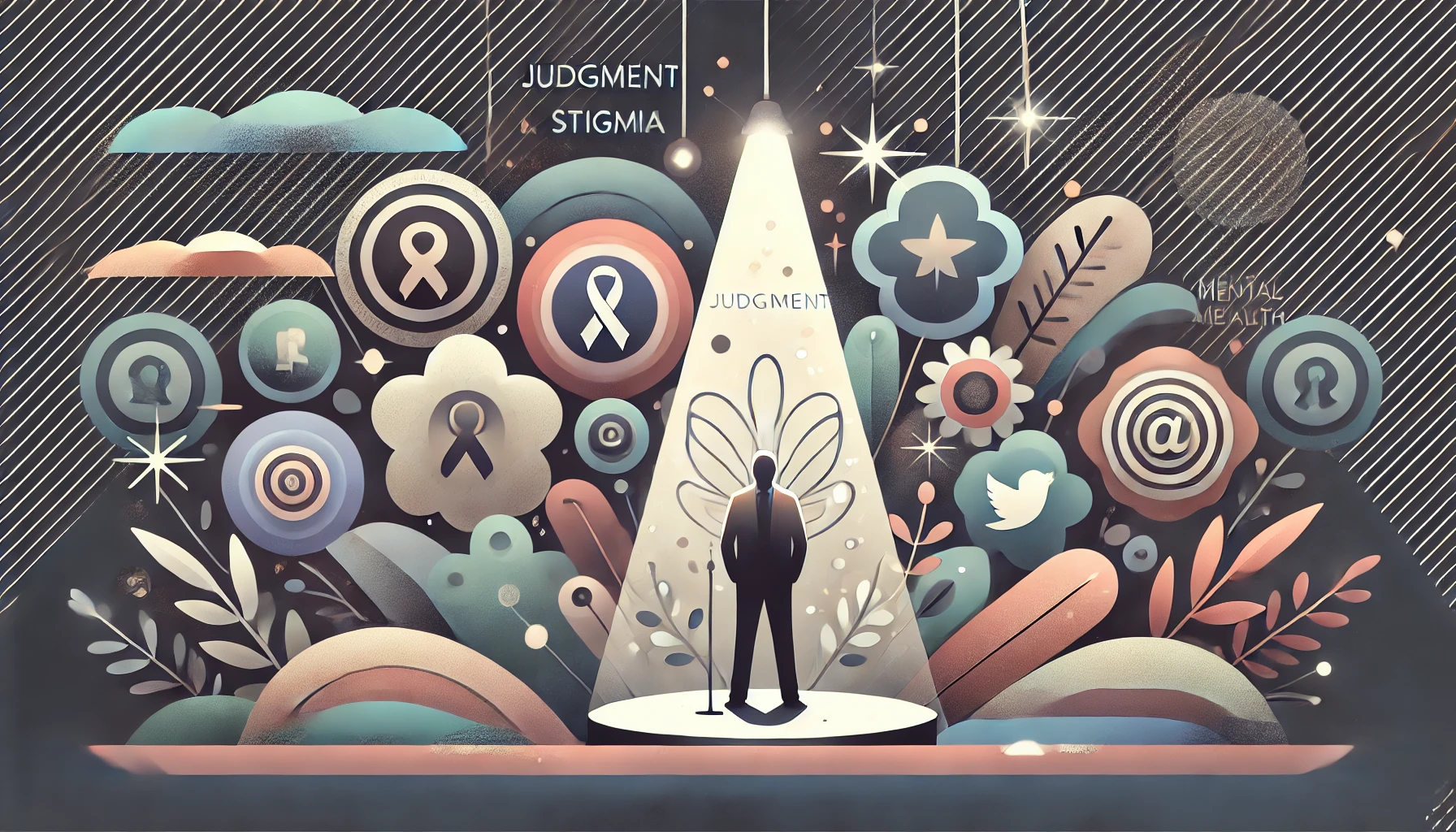Public Perception and High-Profile Cases in Mental Health Awareness
Explore how public perception and high-profile cases reveal the challenges of balancing mental health awareness, stigma, and accountability in social media discourse.
Table of Contents
- Introduction
- The Rise of Call-Out Culture
- Mental Health and Celebrity Meltdowns: Britney Spears’ Case
- Politicians and Mental Health: A Double Standard?
- Social Media Influencers: Navigating Fame and Mental Health
- Online Shaming and the Mental Health Spectrum
- Towards a Balanced Approach
- Conclusion: A Society in Transition
Introduction
As the idea of mental health on a spectrum gains ground, one critical question looms large: How do we navigate real-world instances where this framework collides with public perception and accountability? Social media has not only made mental health a more visible topic but also turned every misstep into a global event. Part 2 takes us through notable examples where public figures’ online behavior led to intense judgment and backlash, highlighting the ongoing struggle to balance empathy with accountability.
The Rise of Call-Out Culture
One of the defining features of social media is the immediacy with which people react to others’ behavior. Unlike traditional media, where editors and producers have time to curate and mediate, social media is immediate, raw, and often unforgiving. Psychologists describe this phenomenon as “call-out culture” or “cancel culture,” where individuals face mass public condemnation for actions deemed inappropriate or offensive. Though rooted in a drive for accountability, call-out culture often bypasses deeper understanding, leaving little room for empathy or nuance.
In the early 2010s, Twitter began to see call-outs escalate into large-scale cancellations. The case of Justine Sacco, a public relations professional who tweeted an insensitive joke in 2013, is one of the most prominent examples. Her tweet went viral while she was on a plane, and by the time she landed, her career was in shambles. While her joke was undeniably offensive, the speed and scale of the backlash revealed a broader issue—society’s rush to condemn without understanding the underlying factors that may have influenced her behavior.
Social psychologist Dr. Jonathan Haidt argued that call-out culture is particularly destructive to mental health conversations because it disregards the complexities of why people behave as they do. In a 2020 article, Haidt emphasized that social media’s instant reaction cycle can lead to dehumanizing others, making it difficult to recognize signs of mental health struggles. Instead of fostering understanding, call-out culture often reinforces a simplistic good-versus-evil narrative.
Mental Health and Celebrity Meltdowns: Britney Spears’ Case
Few stories highlight the intersection of mental health, public scrutiny, and media more poignantly than that of Britney Spears. In the late 2000s, Spears went through a highly publicized mental health crisis, culminating in a series of incidents, including shaving her head and an altercation with paparazzi. The media relentlessly covered her every move, often portraying her as “crazy” or “unhinged.” The public echoed these sentiments, with Spears becoming the punchline of late-night jokes and online memes.
Years later, as more details about Spears’ struggles emerged, public perception began to shift. Her case became a watershed moment for conversations around mental health, exploitation, and privacy, especially when the #FreeBritney movement emerged in 2019. This grassroots campaign questioned whether Spears was being unfairly controlled under her conservatorship, sparking wider discussions about the treatment of individuals with mental health issues in the public eye.
Mental health advocates saw this case as a stark reminder of the dangers of simplifying complex issues. Spears’ experience shed light on how public opinion can exacerbate a person’s struggles, pushing them further into isolation or distress. Psychologists like Dr. Gail Saltz argued that Spears’ case illustrated the need for society to understand mental health in a more nuanced way, recognizing the spectrum of challenges people face rather than labeling them as “broken” or “crazy.”
Politicians and Mental Health: A Double Standard?
Mental health stigma in the public eye isn’t limited to celebrities. Politicians, too, face intense scrutiny, though they’re often expected to exhibit unshakeable resilience. Abraham Lincoln, for instance, is a historical figure whose mental health struggles were documented in letters and biographies. Despite experiencing bouts of depression, he led the United States through one of its most turbulent periods, the Civil War. Lincoln’s story is often framed as a tale of perseverance, yet contemporary politicians rarely receive the same level of empathy.
The case of Senator John Fetterman from Pennsylvania highlights this double standard. In 2023, Fetterman openly discussed his battle with clinical depression, which had intensified after a stroke. His decision to seek treatment was met with mixed reactions. Supporters praised his transparency, arguing that it humanized him and helped reduce stigma. Critics, however, questioned his ability to perform his duties, underscoring the notion that mental health struggles can be viewed as a weakness in leadership.
Fetterman’s case became a talking point in the mental health community, as advocates argued that acknowledging mental health challenges should not disqualify someone from public office. His transparency was seen as a step toward normalizing mental health care, but it also exposed the persistence of stigma. Despite progress, mental health is still largely viewed through a binary lens, where public figures are expected to be either “fit” or “unfit,” with little room for the nuanced reality that mental health exists on a spectrum.
Social Media Influencers: Navigating Fame and Mental Health
The pressures of social media fame bring another layer to the conversation. Influencers, who are often young and inexperienced, must navigate the highs and lows of public scrutiny with limited support. Essena O’Neill, an Instagram influencer from Australia, made headlines in 2015 when she publicly quit the platform, citing the negative impact it had on her mental health. O’Neill’s story revealed that behind carefully curated feeds often lies a struggle for validation, leading to anxiety, depression, and burnout.
O’Neill’s story revealed that behind carefully curated feeds often lies a struggle for validation, leading to anxiety, depression, and burnout. While her decision to leave Instagram was applauded by some, others criticized it as a publicity stunt, illustrating society’s tendency to question rather than empathize with mental health struggles.
Psychologists have since identified “influencer fatigue” as a real phenomenon, noting that the pressure to maintain a public persona can exacerbate mental health challenges. Advocates argue that understanding mental health as a spectrum could help reduce the stigma faced by influencers and other public figures, fostering a culture where people feel supported rather than judged.
Online Shaming and the Mental Health Spectrum
The narrative around mental health and social media behavior isn’t just about celebrities or influencers; it’s about everyone who engages online. The prevalence of online shaming highlights a concerning aspect of social media culture, where people are quick to judge and slow to empathize. Public shaming often disregards the possibility that someone’s behavior might be influenced by factors beyond what is immediately visible, such as untreated mental health issues.
Mental health advocates suggest that recognizing the mental health spectrum could reshape how society responds to online missteps. By acknowledging that not all mental health struggles are visible or severe, people might become more willing to pause before passing judgment. This shift could lead to a more compassionate online culture, where understanding and accountability coexist.
Psychologists like Dr. Brené Brown argue that empathy, rather than shame, is key to fostering meaningful change. Brown’s research on vulnerability and empathy has gained traction in the mental health community, encouraging people to consider the possibility that someone’s online behavior might stem from inner struggles rather than malice.
Towards a Balanced Approach
While recognizing mental health as a spectrum has the potential to reduce stigma, it also presents challenges. Some worry that this approach risks excusing harmful behavior or diminishing personal responsibility. Mental health experts stress that understanding behavior through a mental health lens doesn’t mean dismissing accountability; rather, it means balancing empathy with consequences.
Advocates argue that this balanced approach could transform online spaces, promoting a culture where people feel supported rather than condemned. In an ideal world, social media platforms would foster environments where individuals can seek help without fear of ridicule, and where behaviors are understood within the context of mental health rather than reduced to moral judgments.
Conclusion: A Society in Transition
As society grapples with the complexities of mental health, high-profile cases and social media discussions reveal both progress and persistent challenges. From celebrities like Britney Spears to politicians like John Fetterman, public figures have opened doors to conversations that challenge traditional views on mental health. Yet, online shaming and call-out culture demonstrate that society is still quick to judge.
In Part 3, we will explore potential solutions and the role of social media platforms in creating healthier online environments. As mental health advocates push for empathy and accountability, the path forward requires a nuanced approach that recognizes the spectrum of mental health without sacrificing responsibility.
References
-
Confronting the Challenge of Mental Health Stigma: A Call to Action by American Psychiatric Association
Efforts to combat mental health stigma and foster greater awareness. American Psychiatric Association
-
The Overwhelming Case for Ending Stigma and Discrimination in Mental Health by World Health Organization
Global initiatives to address mental health stigma and promote advocacy. World Health Organization
-
Social Media's Growing Impact on Our Lives by American Psychological Association
Examining the influence of social media on mental health and public behavior. American Psychological Association

